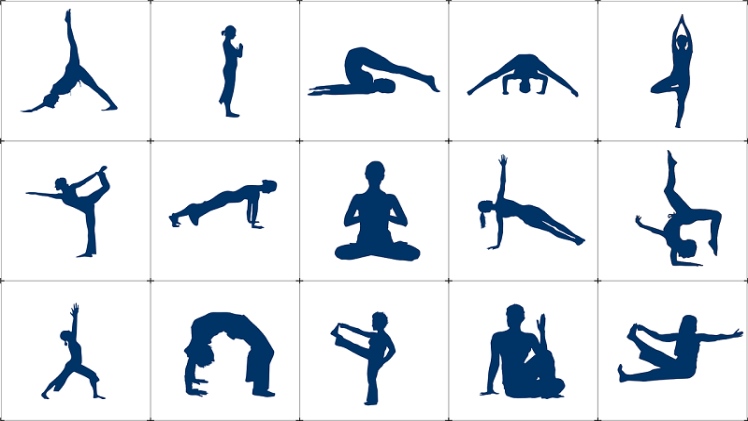Introduction
In today’s fast-paced world, where work and responsibilities often take precedence, maintaining a regular exercise routine can easily slip down our list of priorities. However, the significance of regular exercise for overall health cannot be overstated. It’s not just about achieving that perfect beach body; it’s about promoting physical, mental, and emotional well-being. In this article, we’ll delve into the myriad ways in which exercise contributes to a healthier and happier life.
Physical Benefits
Weight Management: One of the most apparent benefits of regular exercise is its role in weight management. Engaging in physical activity helps burn calories, which is essential for maintaining a healthy weight. Combining exercise with a balanced diet can aid in shedding excess pounds and preventing obesity-related health issues such as diabetes, heart disease, and joint problems.
Cardiovascular Health: Exercise is a powerful ally in keeping your heart healthy. Regular aerobic exercise, such as running, cycling, and swimming, strengthens the heart muscle, lowers blood pressure, and reduces the risk of cardiovascular diseases. It also enhances circulation, ensuring that oxygen and nutrients reach your body’s tissues more efficiently.
Muscle Strength and Flexibility: Strength training exercises like weightlifting, yoga, and resistance training help build and maintain muscle mass. Strong muscles support good posture and balance, reducing the risk of falls and injuries. Additionally, stretching exercises improve flexibility, keeping your joints and muscles supple and reducing the likelihood of stiffness and pain.
Bone Health: Weight-bearing exercises, such as walking, jogging, and dancing, are crucial for maintaining bone density. Regular physical activity helps prevent conditions like osteoporosis, making your bones stronger and more resilient as you age.
Improved Immunity: Engaging in regular exercise boosts your immune system, making your body better equipped to fend off infections and illnesses. It increases the production of antibodies and white blood cells, enhancing your overall resistance to diseases.
Mental and Emotional Benefits
Stress Reduction: Exercise is a natural stress buster. Physical activity triggers the release of endorphins, often referred to as “feel-good” hormones. These chemicals promote a sense of well-being and reduce stress and anxiety. Regular exercise can be an effective tool for managing daily stressors and improving your mood.
Mental Clarity: Exercise isn’t just beneficial for the body; it’s also good for the mind. It enhances cognitive function, improves memory, and sharpens concentration. Engaging in physical activity regularly can help prevent age-related cognitive decline and reduce the risk of neurodegenerative diseases like Alzheimer’s.
Enhanced Sleep Quality: People who exercise regularly tend to experience better sleep quality. Physical activity can help regulate your sleep patterns, making it easier to fall asleep and stay asleep throughout the night. Adequate sleep is essential for overall health and well-being.
Anxiety and Depression Management: Exercise is increasingly recognized as a powerful tool in managing mental health conditions such as anxiety and depression. It promotes the release of neurotransmitters like serotonin and norepinephrine, which play a crucial role in regulating mood. Regular exercise can reduce the symptoms of these conditions and improve overall mental well-being.
Social and Lifestyle Benefits
Increased Social Interaction: Engaging in group exercise classes or team sports provides an opportunity for social interaction, fostering a sense of community and belonging. Social support is essential for mental and emotional well-being.
Healthy Lifestyle Habits: Regular exercise often leads to healthier lifestyle choices. People who prioritize physical activity are more likely to make better dietary choices, avoid smoking, and limit alcohol consumption, all of which contribute to improved overall health.
Longevity: Numerous studies have shown that a sedentary lifestyle is associated with a higher risk of premature death. Regular exercise can increase your lifespan by reducing the risk of chronic diseases and promoting overall vitality and well-being.
Conclusion
Incorporating regular exercise into your daily routine is not just a matter of aesthetics; it’s a fundamental step toward maintaining and improving your overall health. The physical benefits, such as weight management, cardiovascular health, muscle strength, and bone health, are complemented by the mental and emotional advantages of stress reduction, improved sleep, and enhanced mood.
Furthermore, exercise offers an opportunity for social interaction and promotes healthier lifestyle choices. Whether you prefer the solitude of a morning jog, the camaraderie of a team sport, or the tranquility of yoga, there is a form of exercise that suits everyone.
So, make the conscious decision to prioritize regular exercise in your life. Start small if needed and gradually build up your routine. The benefits are not only physical but also extend to mental, emotional, and social well-being. In the journey toward a healthier, happier life, exercise is a critical stepping stone.


